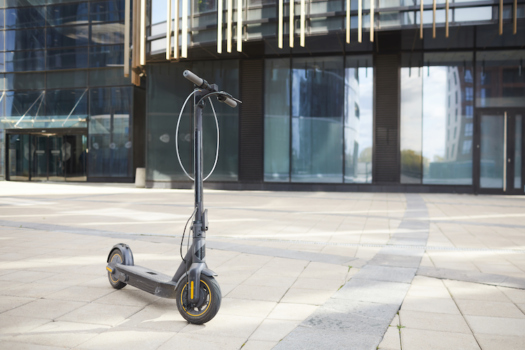
In Goyco v. Progressive Insurance Company (A-12-23/088497) (Decided May 14, 2024), the Supreme Court of New Jersey held that an operator of a low-speed electric scooter (LSES) is not a “pedestrian” entitled to personal injury protection (PIP) benefits under the New Jersey Automobile Reparation Reform Act, also known as the “No-Fault Act.”
Facts of Goyco v. Progressive Insurance Company
In November 2021, an automobile struck and injured plaintiff David Goyco while he was operating an LSES that has two wheels connected by a floorboard, as well as handlebars, a headlight, brake light, speedometer, and electric motor. Goyco made a claim for PIP benefits under his personal automobile policy with defendant Progressive Insurance Company.
Progressive denied Goyco’s claim. It concluded that coverage was not required under Goyco’s policy, which tracks N.J.S.A. 39:6A-4, because the LSES Goyco operated at the time of the accident did not meet the definition of an “automobile,” and Goyco could not be considered a “pedestrian.”
The No-Fault Act, N.J.S.A. 39:6A- 1 to -35, requires insurance companies to provide PIP benefits to insured individuals in two circumstances: (1) when the covered individual is “occupying, entering into, alighting from or using an automobile”; or (2) when the covered individual is a pedestrian. The No-Fault Act defines “pedestrian” as “any person who is not occupying, entering into, or alighting from a vehicle propelled by other than muscular power and designed primarily for use on highways, rails and tracks.”
Goyco filed a verified complaint, asserting that LSES riders should be deemed “pedestrians” entitled to PIP benefits under the No-Fault Act in light of the 2019 enactment of N.J.S.A. 39:4-14.16(g), which provides that an LSES should be considered equivalent to a bicycle — with bicyclists having been deemed pedestrians under the No-Fault Act — except in statutory provisions that clearly do not apply to an LSES. The trial ruled against Goyco, and the Appellate Division affirmed.
NJ Supreme Court’s Decision in Goyco v. Progressive Insurance Company
The New Jersey Supreme Court affirmed. “[W]e hold that an LSES rider does not fall within the definition of ‘pedestrian’ for purposes of the No-Fault Act because the LSES is ‘a vehicle propelled by other than muscular power and designed primarily for use on highways, rails and tracks,’” Justice Lee A. Solomon wrote. “Therefore, Goyco is not entitled to PIP benefits, and we affirm as modified the judgment of the Appellate Division.”
In reaching its decision, the New Jersey Supreme Court acknowledged that the No-Fault Act does not define the term “vehicle”; however, it refused to look outside the statute, citing the Legislature’s instructions to interpret a statute by giving each word its “generally accepted meaning” unless a “different meaning is expressly indicated.”
The Court ultimately concluded that an LSES clearly falls within those ordinary definitions of the term “vehicle.” It also found that Goyco’s LSES was “propelled by other than muscular power” because it used an electric motor with a rechargeable battery and was not designed to be propelled by muscular power, and plaintiff’s LSES was “designed primarily for use on highways” based on its features and the broad ordinary definition of that term. Based on the foregoing, the New Jersey Supreme Court found he was not a “pedestrian” for purposes of the No-Fault Act.
The New Jersey Supreme Court also rejected Goyco’s argument that that because the regulations applicable to a bicycle also apply to a low-speed electric scooter, and because the New Jersey Supreme Court has held that a bicyclist is a pedestrian for purposes of the No-Fault Act, an LSES rider must also be a pedestrian for purposes of the act. “Expanding the definition of ‘pedestrian’ to include LSES operators would advance the medical coverage goal but undermine the goal of curbing the rise of insurance costs,” Justice Solomon wrote. “The legislature may certainly choose to expand the availability of PIP coverage to LSES operators, as they did with motorcycles, but that policy decision and its insurance cost implications, if any, is properly for the legislature, not the court.”
